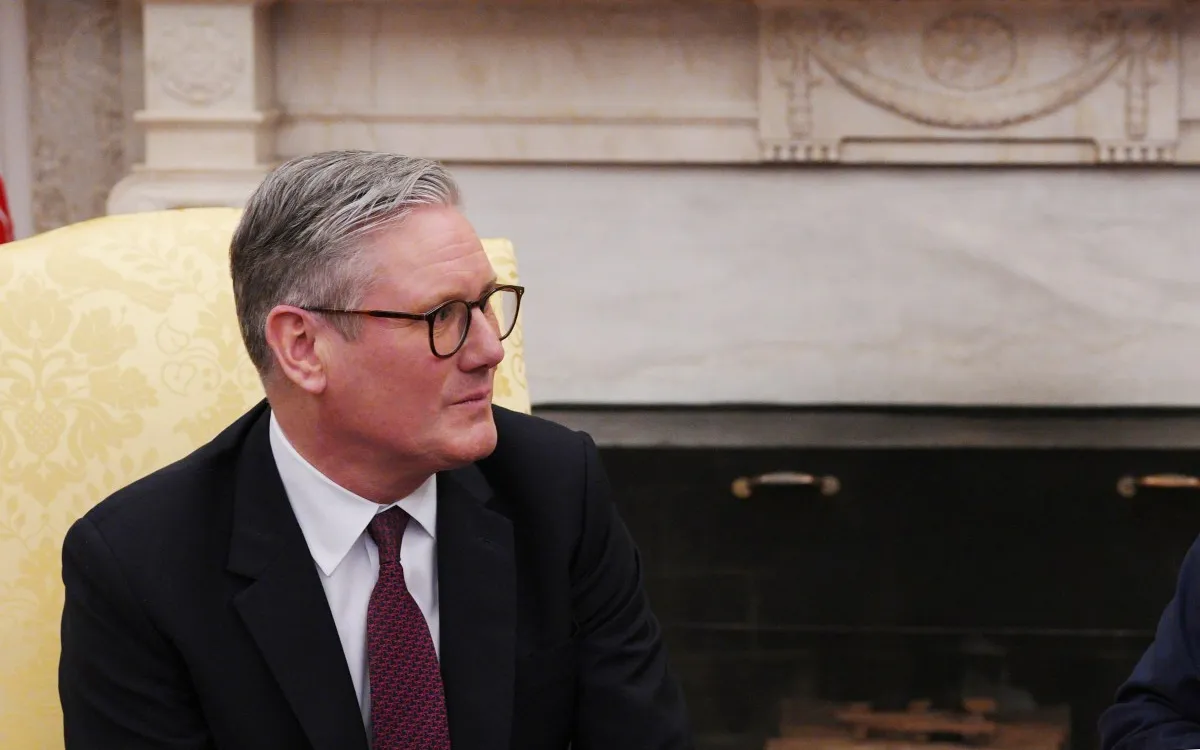
In a significant diplomatic engagement, United States President Donald Trump welcomed British Prime Minister Keir Starmer to the White House for their first official meeting. This encounter focused on crucial topics such as Ukraine’s security, strengthening trade relations, and the future of the North Atlantic Treaty Organization (NATO). Despite the cordial atmosphere, the meeting revealed underlying tensions as Starmer navigated the complexities of addressing issues that diverge from Trump's views without openly contradicting him.
Starmer, representing the centre-left Labour Party, faced keen scrutiny regarding his interaction with the controversial Trump. During their initial discussions in the Oval Office, Starmer extended an olive branch by presenting a signed invitation from King Charles III for a state visit to the UK, which Trump readily accepted. Notably, it is uncommon for US presidents to have multiple state visits with British monarchs, and Trump’s last visit occurred in 2019 under Queen Elizabeth II.
Directly acknowledging their contrasting political backgrounds, Starmer remarked, “It’s no secret we’re from different political traditions. But there’s a lot that we have in common.” This statement aimed to find common ground, emphasizing the importance of winning in politics: “What counts is winning. If you don’t win, you don’t deliver.”
During the meeting, Trump expressed optimism about a potential trade agreement, highlighting that trade between the US and UK was valued at approximately $148 billion in 2024. He stated, “We’re gonna have a great trade agreement one way or the other.” However, Starmer gently countered Trump’s claims that the current trade relationship was unfair. “Our trading relationship is not just strong. It’s fair, balanced, and reciprocal,” he asserted, aiming to reaffirm the integrity of the US-UK trade partnership.
Additionally, the discussion opened up space for US Vice President JD Vance to revisit his earlier criticisms regarding free speech rights in the UK. Responding to Vance’s previous remarks at the Munich Security Conference, Starmer defended the UK’s commitment to democratic values, stating, “I’m very proud of our history there.”
Trump's unpredictable approach to foreign policy has raised concerns about the future of key alliances, particularly NATO. When pressed about his support for Article 5, which mandates mutual defense among NATO members, Trump confirmed, “I support it,” while expressing confidence that such measures would not be necessary. Starmer, recognizing the historical significance of the US-UK alliance, emphasized the importance of mutual defense, stating, “We remain each other’s first partner in defense.” He echoed Trump’s call for European nations, including the UK, to increase their defense spending in support of NATO.
One of the primary focuses of their discussions was the ongoing conflict arising from Russia’s invasion of Ukraine. Starmer commended Trump for facilitating peace negotiations while simultaneously issuing a cautionary note against achieving a peace that favors aggressors. “History must be on the side of the peacemaker, not the invader,” he stated, highlighting the critical stakes involved in addressing the situation.
Trump is set to meet with Ukrainian President Volodymyr Zelenskyy to discuss potential agreements that could allow the US access to Ukraine’s rare earth minerals. Throughout the meeting, Trump described a robust future for American involvement in Ukraine, emphasizing the need for engagement with both sides of the conflict.
The discussions also touched upon the fragile situation in the Middle East, particularly the ongoing conflict in Gaza. Starmer reaffirmed his commitment to a two-state solution, advocating for Palestinian sovereignty and calling for continued support for humanitarian efforts in the region. He remarked, “We need to allow Palestinians to return and to rebuild their lives.” This stance contrasts with Trump’s earlier controversial remarks regarding US involvement in Gaza, where he suggested a radical restructuring of the territory.
In summary, the meeting between President Trump and Prime Minister Starmer was marked by a blend of diplomatic courtesy and underlying tensions, reflecting the complexities of international relations in an evolving geopolitical landscape. As both leaders navigate their respective political landscapes, their discussions will likely shape the future of US-UK relations and broader international dynamics.